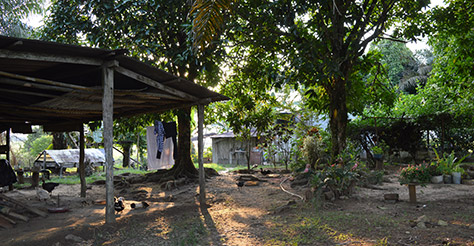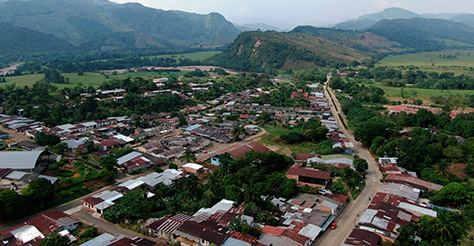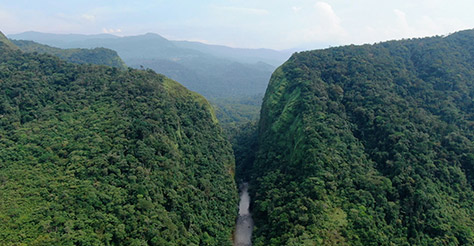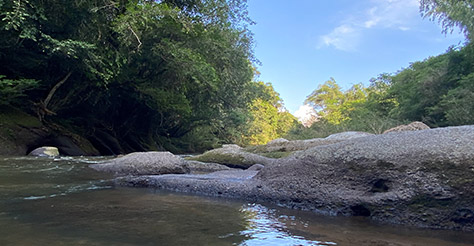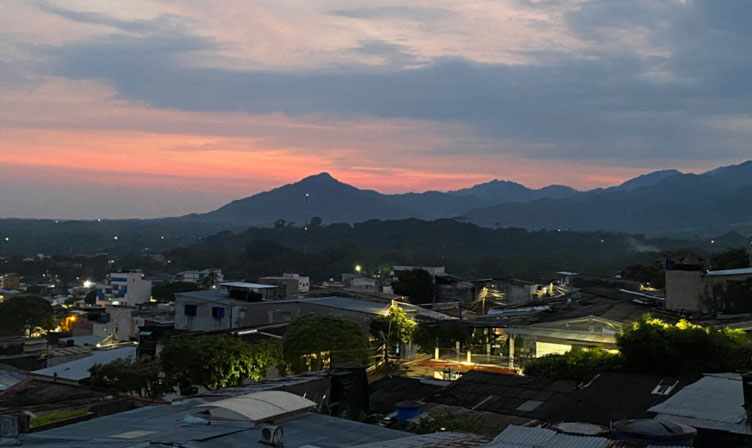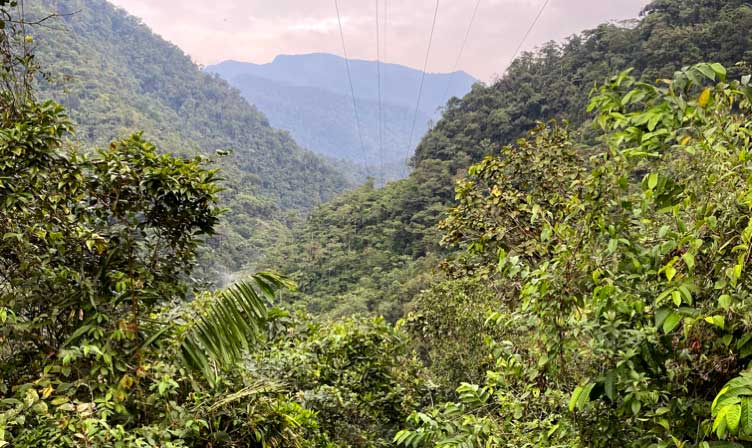Puerto Torres
Puerto Torres is a vereda* in the rural area of the municipality of Belén de los Andaquíes. It’s located next to the Fragua Chorroso River that originates in the Alto Fragua Indi Wasi National Natural Park. This vereda was established with the arrival of settlers, promoted by state initiatives in the 1960s, looking to grow crops of rubber, cocoa, and pasture for livestock.
Between 2000 and 2003, this area had episodes of violence due to the arrival of paramilitary groups that came to attack the guerrillas and gain control of the coca plantations in the region. With the arrival of the Frente Sur Andaquíes de las AUC (United Self-Defense Forces of Colombia), the residents fled for fear of being killed.
It took many years for the families to return to their farms and, fortunately, these episodes of violence ceased. Today, most of the territory is occupied by farms whose main activity is livestock. Many of these farmers have been actively helping to transform the history of the region and conserve its biodiversity. The C&G Program (Conservation and Governance Program in the Amazonian Piedmont) has implemented several sustainable livestock projects and sustainable agricultural farms that help regain harmony between humans and nature.
The sound experience of the silvopastoral estates near Puerto Torres reveals a landscape with a great variety of birds. Both at dawn and dusk, it mixes with the sounds of cicadas, frogs and toads. In addition to the colorful palette of sounds of the plains of Caquetá, we can also hear the captivating songs and whistles of the peasants herding the cattle.
*Vereda is a sub divisional administrative part of a municipality, mostly rural.
Soundscapes
Stop and deeply listen to what nature has to say.
The Voices of the People
Stories and experiences of the communities.
The Chapter Caquetá from the VozTerra platform has been possible thanks to the support of the United States Agency for International Development (USAID), under the Conservation and Governance Program in the Amazonian Piedmont, launched by the Patrimonio Natural Fund, in partnership with VozTerra. Its content is responsibility of VozTerra and does not necessarily reflect the opinion of USAID or the United States government or the Natural Heritage Fund.





